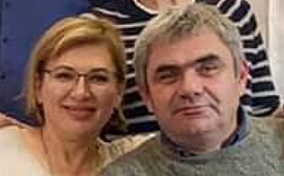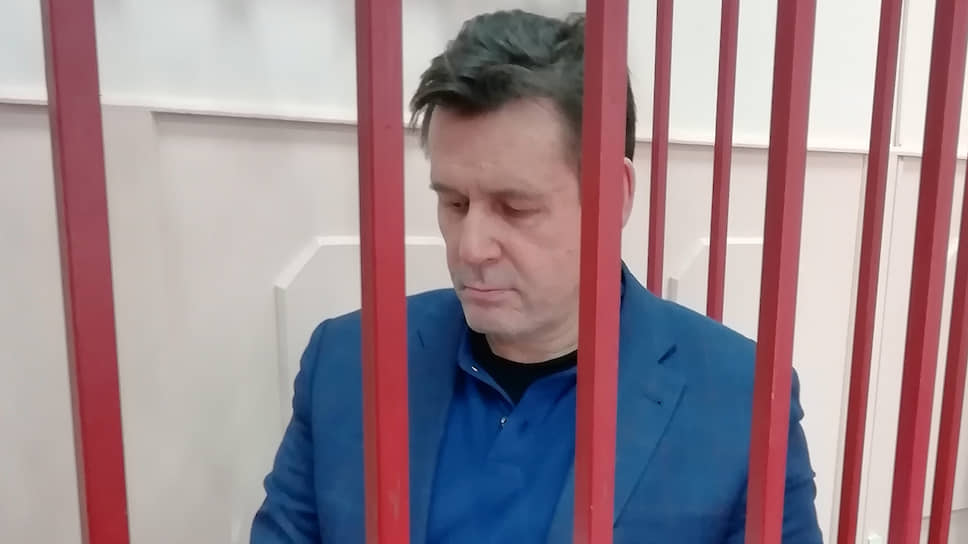
We continue to talk about the channel through which Russian officials withdrew more than $ 1 billion from the Russian Federation to the United States. Recall that the son of the former Prosecutor General of Russia Artem Chaika was registered in Switzerland at the address of a businessman of Ukrainian origin Bogdan Lisurenko. In Navalny's investigation, Bogdan Lisurenko's mother, Lilia, was mentioned literally in passing. Lilia Lisurenko and a certain Elena Shubina are founders of the Swiss company Favor SA. According to the information available to Rucriminal.info, the services of this company were regularly used by many Russian and CIS officials and businessmen. The package of services also included assistance in withdrawing money from the Russian Federation and legalizing money of dubious origin both in the Swiss Confederation and in the United States. Who is behind this channel? Shubina has a husband, Vadim Kebets. He worked in managerial positions in various Russian banks, including KB Rosestbank. In the USA, Vadim Kebets is the director of Concept Brokerage Holding Corporation. This company, in turn, owns a controlling stake in Western International Securities Inc, which manages assets worth about US $ 1 billion.

In order to understand who Vadim Kebets is, as well as what people, connections and money stand behind the companies he runs and founded, you need a deep understanding of the history of Kebets' alma mater - JSCB Russian-Estonian Bank.
Russian-Estonian Bank is the full and extremely rarely used name of the now deceased Togliatti AKB RosEstBank.
So, let's start studying this entertaining story from archaic post-Soviet "transits" to the current modern technologies of multibillion-dollar "laundromats", in which we are waiting for very unexpected coincidences and discoveries, which for some reason no one has paid attention to.
As you already understood, the true homeland of RosEstBank is Estonia.
RosEstBank was created on the basis of the Togliatti branch of the Tartu Commercial Bank (Tartu Kommertspank). This branch was once opened so that the Estonian company Norma, which had been producing seat belts for AvtoVAZ for many years, was more convenient to settle with the Russian auto giant, since after the collapse of the Union, in connection with the introduction of Estonia's currency, a serious problem of mutual settlements arose.
The management of the branch, which had close relations with the top management of AvtoVAZ, quickly assessed the prospects of creating an independent banking institution with direct access to foreign partners.
The priority area ofthe bank being created was to be servicing export contracts of AvtoVAZ. Also, due to the very tense socio-political situation in Russia in the 90s of the last century, it was planned to use the bank as a channel for the withdrawal and legalization of funds received from the sale of AvtoVAZ products in quiet “tax havens” outside the Russian Federation.
So in February 1992 RosEstBank appeared, the shareholders of which were Tartu Kommertspank (TKP) and three small enterprises of Togliatti. The energetic head of the Togliatti branch Boris Fligil, with the active support of the head of TKP, former Prime Minister of Soviet Estonia Bruno Saul, took over as president of the bank.
Already at the end of 1992, the parent bank TKR faced significant financial difficulties and its activities were suspended. In this regard, the management of RosEstBank decided to buy out its share from TKR (according to some sources, the costs of the entire block of shares in the bank amounted to a ridiculous amount of $ 10,000 for today's times).
It is worth noting that the first commercial bank in Estonia, Tartu Kommertspank, was established in 1988 by a number of state-owned enterprises in Tartu. with the active support of the party and Soviet bodies of the Estonian SSR. Therefore, TKP had a reputation in Estonia as “the bank of the former Soviet nomenklatura”.
In the period 1991-1992, preceding the monetary reform, the Finnish mark more and more displaced “wooden” Soviet rubles, which were becoming useless in independent Estonia.
So, bankers from Togliatti, in close cooperation with the parent organization Tartu Kommertspank, began to buy up former Soviet rubles on the cheap all over the Baltics. Then they were transported by chartered plane to Russia for exchange for hard currency, where rubles were much more expensive at that time. Moreover, things were going so well that the plane chartered by the bank very soon became the property of RosEstBank.
Separately, it is worth clarifying that the brain of this transit operation on the part of the Russians was the head of the branch, and then the president of RosEstBank Boris Fligil. Whose right hand was Vadim Kebets, mentioned in the first part of our investigation.
Note that Vadim Kebets came to the Togliatti branch of TKP in January 1992 as the head of the department of foreign economic activity.
Prior to that, he, together with Boris Fligil, worked hard in one of the branches of AvtoVAZbank in Togliatti as head of the foreign economic relations department.
And even earlier, after graduating from the Togliatti Polytechnic Institute with a degree in mechanical engineering, from 1987 to 1991 he worked as an engineer at the foreign trade company AvtoLada.
It should be noted that among the shareholders, top managers and clients of the bank there were many influential people associated with the foreign trade divisions of AvtoVAZ. In particular, it is worth mentioning Nikolai Lakutin, shareholder and First Vice-President of RosEstBank, who from 1987 to 1994 served as Deputy Director of AvtoVAZ's 100% subsidiary, the foreign trade company AvtoLada. It was on the many-sided connections and consultations of Lakutin that Vadim Kebets began to build a channel for the withdrawal and legalization of capital.
We will talk in more detail about Nikolai Lakutin himself and his connections in one of the next parts of our story.
In the mid-90s, after the collapse of AvtoVAZBank, RosEstBank JSCB became one of the main financial institutions through which AvtoVAZ and many of its partners carried out their settlements.
As you know, AvtoVAZ entered capitalism with the active assistance of Boris Berezovsky and the Russian-Swiss company LogoVAZ founded by him. Berezovsky's business career at AvtoVAZ began in the late 1980s, when he helped implement a new programming system at the plant. However, very soon the smart doctor of sciences realized that you could not make big money on this. And then Boris Abramovich suggested that the management of AvtoVAZ develop a new distribution system for its products for the enterprise, following the model of Western automobile concerns. I liked the idea, and Berezovsky got the go-ahead. But as always happens in modern history, the largest dealer of AvtoVAZ has become the company of Berezovsky himself - LogoVAZ. One of the largest real estate operators in Switzerland, Andre & Cie, has become a partner and founder of LogoVAZ.
One of Berezovsky's most trusted people at AvtoVAZ was the head of the department of economics and finance, and then the financial director of the enterprise, Erkin Norov, who, by a strange coincidence, was an active lobbyist for RosEstBank's services.
In 1993, work began on opening a representative office of the bank in Geneva, which was officially opened in 1997.
In September 1996 the London office of the bank was opened.
In 1997 RosEstBank opened a branch in Moscow, in 1998 the bank's subsidiary, RosEstLeasing, began operations.
European Bank for Reconstruction and Development signed a cooperation protocol in Moscow; to lend to small enterprises through RosEstBank not only in Samara and Togliatti, but also in other regions of Russia.
A solid clientele represented by the then powerful Berezovsky, a developed network of branches, a turnover of $ 100 million per year - all this allowed RosEstBank in 1993-1998 to take a worthy 33rd place in the Russian financial market.
About how exactly Boris Berezovsky worked with AvtoVAZ, much has already been said and written. Those interested can refresh their memory here at this link.
What is important for us is that RosEstBank was an important part of the ecosystem of Berezovsky's empire.
However, not wanting to keep all the eggs in one basket, the management of RosEstBank JSCB simultaneously provided similar services to other AvtoVAZ dealers. In particular, the bank's employees provided consulting and other services to the leader of the well-known "Solntsevo" business community, Sergei Mikhailov, who was with Boris Abramovich, let's say, in a tense relationship.
In 1999, the Swiss prosecutor Carla del Ponte handed over to the Russian authorities materials testifying to the active participation of RosEstBank in the transit of "dirty" money to Swiss banks. These materials provided a broad overview of all activities related to the production and sale of Lada cars.
But nobody paid attention to these documents. And why? If the chief caretaker of the Prosecutor General's Office Nazir Hapsirokov, on behalf of the supervisory authority, regularly entered into multi-million dollar contracts, part of the funds through which ply between Geneva and Moscow, including through the channels of RosEstBank.
The collapse of RosEstBank followed the same patterns as it happened with its parent company, the Estonian TKR. The situations were so similar that there is a feeling that at one time not only ordinary employees of RosEstBank, but all of its management were trained in Estonia.
As well as for TKR, for RosEstBank it was crucial to withdraw money from the bank under the guise of loans and foreign "investments". In both cases, during bankruptcy management in banks, the auditors "dug up" a lot of interesting things.
The problems of Rosestbank began in 1998, when a "hole" of 400 million rubles was discovered in the balance sheet of the institution. 1999 did not bring relief, on the contrary, the “hole” in the balance sheet grew by 240 million rubles.
Customer dissatisfaction eventually led to the loss of the banking license.
RosEstBank President Boris Fligil in an interview with the local press, blaming the Russian state for all his troubles, argued that $ 10-15 million would be enough for him to prevent bankruptcy. According to him, the reason for the bankruptcy of RosEstBank was the rate for the "hard" ruble announced by the Central Bank of Russia, as well as the Central Bank's unwillingness to issue a stabilization loan to RosEstBank.
However, as it turned out later, the bank's monetary assets, which had irrevocably disappeared outside the borders of Russia, many times exceeded the sums necessary to save the bank, according to Fligil.
In addition, the owners of the bank, Boris Fligil and Vitaly Vavilin, transferred most of the liquid Russian assets of RosEstBank to the National Trade Bank.

And the bank's foreign investments, which were supervised and controlled by the vice president for foreign economic activity and one of the co-owners of RosEstBank, Vadim Kebets, suddenly became unprofitable.
A small lyrical digression, it is curious that the Russian Themis, albeit almost 20 years later and on another occasion, but still got to Messrs. Vavilin and Fligil.
Until recently, Ruslan Miniakhmetov, a well-known senior investigator for especially important cases of the Main Investigative Directorate of the ICR, was investigating their criminal cases, and operational support in both cases was carried out by the "K" department of the Economic Security Service of the FSB of Russia.
And by a strange coincidence, all the main troubles of the bankers began after the loud resignations of the head of the Economic Security Service of the FSB, Yuri Yakovlev, and the head of the department for the SEB of the FSB of the Russian Federation, Viktor Voronin.
To be continued
Alexey Ermakov






